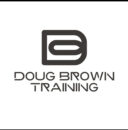Beginner’s Guide to Fitness: What You Need to Know
Getting started with fitness can feel overwhelming, but it’s one of the best decisions you can make for your life. Regular exercise not only boosts your energy and improves your mood but also enhances your overall quality of life. Whether you’re aiming to improve your health, lose weight, gain strength, or simply feel better, everyone starts somewhere. Here’s how you can kickstart your fitness journey:
Setting Realistic Goals
Understanding why you want to start your fitness journey is crucial.
It could be for health reasons, weight loss, strength building, or just overall well-being. Knowing your “why” will keep you motivated, especially on tough days. When setting goals, use the SMART method:
Specific: Define exactly what you want to achieve (e.g., lose 5 lbs).
Measurable: Quantify your goal (e.g., in the next 2 months).
Achievable: Make sure it’s something realistic for you.
Relevant: Align with your overall objectives.
Time-Bound: Set a timeframe to achieve it (e.g., by exercising three times a week).
The Basics of Fitness
A well-rounded fitness routine includes three main types of exercises:
Cardio: Activities like walking, jogging, or cycling improve heart health and endurance.
Strength Training: Involves bodyweight exercises or lifting weights to build strength and muscle.
Flexibility: Stretching and yoga enhance flexibility, improve range of motion, and prevent injuries.
A balanced weekly workout plan for beginners might look like this:
Monday: 30 minutes of walking or jogging
Tuesday: Strength training workout
Wednesday: Yoga or stretching session
Thursday: Rest day
Friday: 30 minutes of cycling or other cardio activity
Saturday: Strength training workout
Sunday: Rest day
Importance of Proper Warm-Up and Cool-Down
Before starting any workout, warm up with light cardio and dynamic stretches to prepare your body. Afterward, cool down with light cardio and static stretches to help your muscles recover and prevent injury.
Fitness and Nutrition
Eating a balanced diet is essential for supporting your workouts and achieving your goals. Focus on:
Proteins: Found in lean meats, beans, and dairy products.
Carbohydrates: Opt for whole grains like brown rice and whole wheat bread.
Healthy Fats: Include sources like avocados, nuts, and olive oil.
Fruits and Vegetables: Provide essential vitamins, minerals, and fiber.
Staying Motivated
Tracking your progress through a fitness journal or app can help you stay motivated. Celebrate small achievements along the way and remember that setbacks are normal. Building a support system, whether through friends, fitness classes, or a personal trainer, can provide encouragement and accountability.
Avoiding Common Pitfalls
It’s important to listen to your body and avoid pushing yourself too hard, especially in the beginning. If you experience pain or discomfort, take a break and seek professional advice if needed. Stay consistent, focus on your goals, and don’t get discouraged by setbacks.
Conclusion
Starting your fitness journey is about taking that first step towards a healthier lifestyle. By setting realistic goals, understanding basic fitness principles, maintaining a balanced diet, and staying motivated, you can achieve long-term success. Remember, consistency is key, and with dedication and effort, you can reach your fitness goals.
For more detailed information on any of these topics, check out the videos on my channel where I discuss them further. If you found this article helpful, please give it a thumbs up, leave a comment sharing your fitness goals or any questions you may have, and subscribe for more fitness content. Here’s to your health and fitness journey—let’s get started today!


